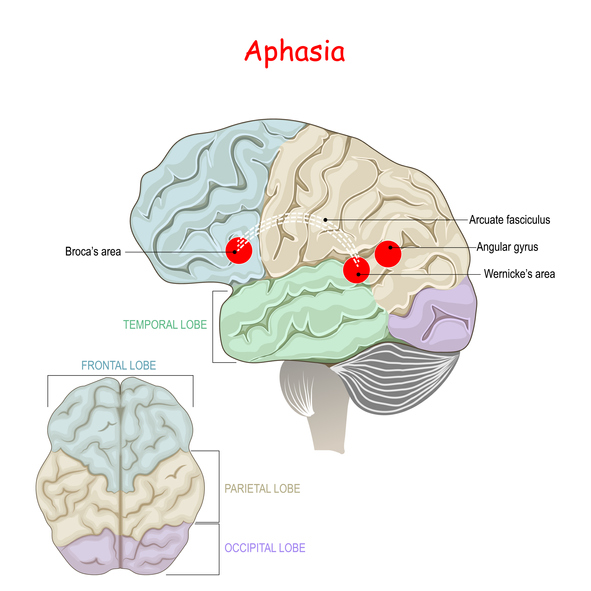Bruce Willis Has Aphasia, A Common Language Disorder We Must Be Proactive About

I think that one of the greatest gifts of being an actor is that you get to share your voice with the world - whether it’s through playing different characters or using your platform to speak up about issues that are important to you. So I can imagine that when famous actor Bruce Willis received his aphasia diagnosis he was beyond devastated.

Aphasia is a language disorder. It is the result of damage to parts of the brain that control language. These areas of the brain are usually on the left side.
“Aphasia usually occurs suddenly, often following a stroke or head injury, but it may also develop slowly, as the result of a brain tumor or a progressive neurological disease,” according to the National Institute of Deafness and Other Communication Disorders (NIDCD).
“The disorder impairs the expression and understanding of language as well as reading and writing.”
One of the most telltale signs of aphasia is difficulty speaking. Aphasia may also make it difficult for the afflicted to understand another person’s speech. According to one report, Willis’s coworkers noticed on set he seemed off as far back as 2017. He had difficulty remembering lines and was visibly confused. Now, at 67-years-old, he has retired from acting.
This report claims that Willis’s family has not disclosed the cause of his aphasia.
There are different types of aphasia and the symptoms can range from mild to severe. The three main types are:
- Wernicke’s aphasia. Occurs when there is damage to the temporal lobe of the brain. People with this type of aphasia may speak in complete sentences, however, the sentences may be unnecessarily long, include unnecessary words and not make sense. For example, a person with this type of aphasia may say, “You know that smoodle pinkered and that I want to get him round and take care of him like you want before," reports NIDCD.
- Broca’s aphasia. Mainly affects the frontal lobe of the brain. This is an area of the brain that is also key for motor movements, so people with this type of aphasia may experience weakness on the right side and paralysis of the arm and leg. People with Broca’s can usually understand the speech of others and be aware of what they want to say. The difficulty really occurs when attempting to speak. “For example, a person with Broca's aphasia may say, ‘Walk dog,’ meaning, ‘I will take the dog for a walk,’ or ‘book book two table, for ‘There are two books on the table’” (NIDCD).
- Global aphasia. Affects extensive portions of the brain that are responsible for language. People with this type of aphasia usually have trouble understanding words and sentences as well as forming words and sentences.
Reportedly, more than two million Americans have aphasia. Congresswoman Gabrielle Giffords got aphasia after she survived a gunshot wound to the head due to an assasination attempt back in 2011. And Game of Thrones star Emilia Clarke got aphasia after surviving a brain aneurysm. Fortunately, she was able to overcome this as she recovered from the aneurysm.
There is no known cure for aphasia, but some do recover on their own.
It really depends on the person and case of aphasia.
“Some people with aphasia recover completely without treatment. But for most people, some amount of aphasia typically remains. Treatments such as speech therapy can often help recover some speech and language functions over time, but many people continue to have problems communicating,” reports John Hopkins Medicine.
As always, prevention is better than cure.
I think a key takeaway is that stroke may cause aphasia, and the Centers for Disease Control and Prevention (CDC) reports that someone in the United States has a stroke every 40 seconds! The good news is that there are multiple proactive steps you can take to help prevent having a stroke such as:
- Quitting smoking
- Drinking alcohol in moderation (if at all)
- Maintaining a healthy weight and following a heart healthy diet
- If you have type 2 diabetes, managing it
- Exercising regularly
- Practising self-care and reducing stress
- Maintaining a healthy cholesterol level and blood pressure
- Taking routine nutrient tests in order to determine any imbalances you may have that may increase your risk of heart disease and stroke
Also be proactive about preventing head injury.
The recent passing of Bob Saget drew national attention to falls and traumatic brain injuries. Read here to learn how you can be proactive.
Enjoy your healthy life!
The pH professional health care team includes recognized experts from a variety of health care and related disciplines, including physicians, attorneys, nutritionists, nurses, and certified fitness instructors. This team also includes the members of the pH Medical Advisory Board, which constantly monitors all pH programs, products, and services. To learn more about the pH Medical Advisory Board, click here.







